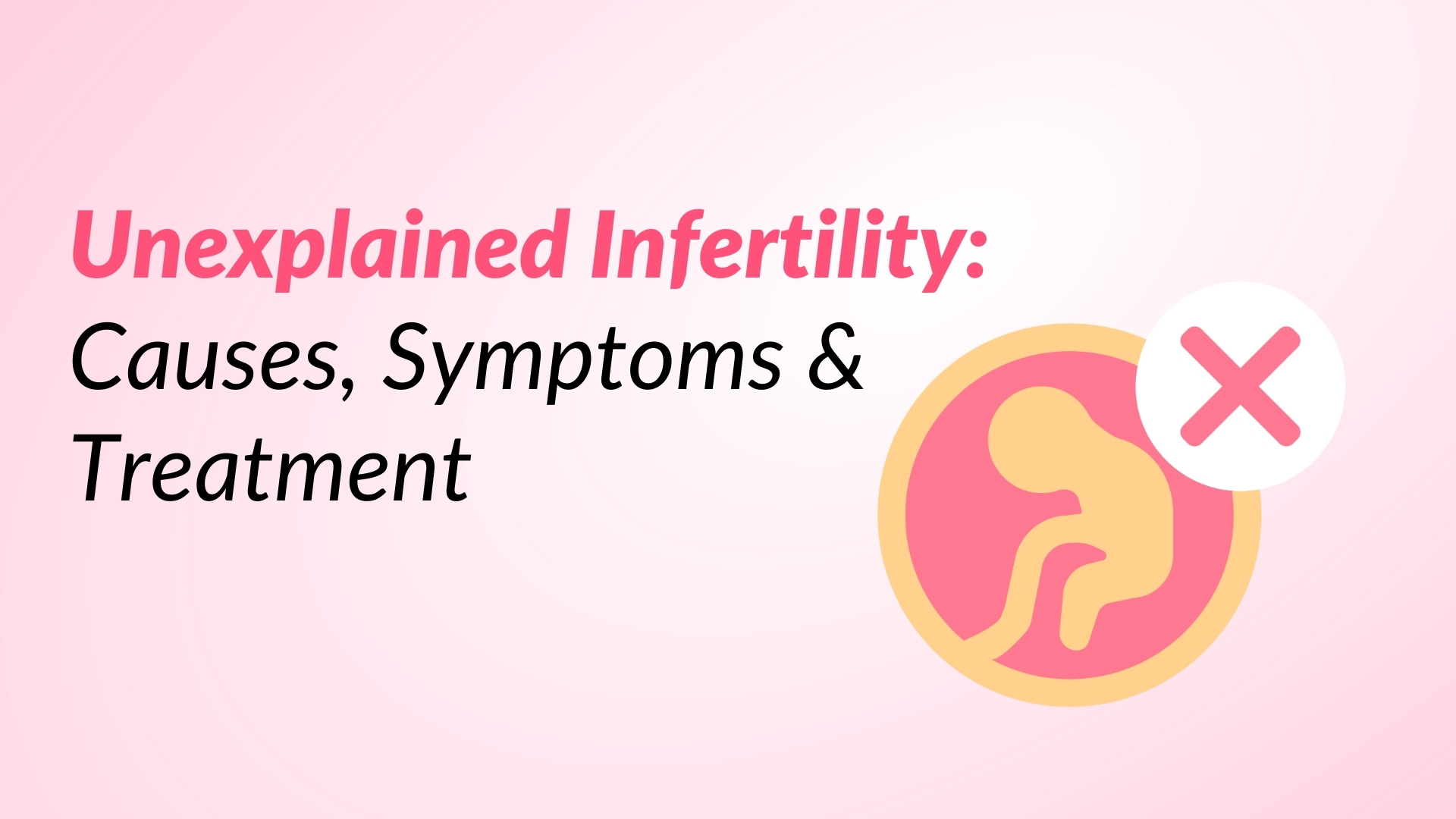Reviewed By: Dr. Tejaswini, fertility specialist at Ferty9 Fertility Center, Secunderabad
The Enigma of Unexplained Infertility: No Clear Answer for Conception?
Journey to parenthood is frequently a time of hope and expectation. However, this route might be quite difficult for some of couples. Unsuccessful attempts for pregnancy can last for months or even years, requiring several tests and consultations, and with occasional or even with careful research, the findings seem to be inconclusive. This is the annoying reality of infertility that cannot be explained. After certain basic fertility evaluations like semen analysis in the male, follicular scanning and tubal patency test in the female being normal, still if the couple could not conceive then it is considered as unexplained infertility by doctors. The instance of unexplained infertility is around 25-30% of couples trying to conceive.
After a series of blood tests, ultrasounds, and even more intrusive procedures, everything seems to be “normal.” It’s a very confusing and emotionally draining situation. “If nothing is wrong, then why isn’t it happening?” is the question that remains in the mind of couples.
What Exactly is Unexplained Infertility?
Unexplained infertility, also known as idiopathic fertility, is a diagnosis of exclusion for couples who fail to conceive despite regular unprotected intercourse and do not meet criteria for male factor infertility, oligo/anovulatory infertility, or anatomical concerns. It is diagnosed when a couple has been trying to conceive for at least 1 year without any success, and standard fertility evaluations reveal no identifiable cause in either partner.
Symptoms of Unexplained Infertility
Unexplained infertility is a condition where there are no clear symptoms. The standard fertility testing results are “normal” and the couple cannot conceive despite having regular intercourse for one year. The primary symptom is the absence of expected signs of fertility issues. The female partner may have regular menstrual cycles and no abdominal pain will be observed. The hormonal imbalances are not evident in the couple and no discomfort will be present in their sexual activity.
Potential Hidden Reasons of Unexplained Infertility
While the exact reasons remain unidentified, researchers believe that unexplained infertility might stem from a combination of subtle factors that are difficult to pinpoint with the present technology. Some of the potential hidden causes are included below:
Ovulatory Dysfunction: Ovulatory dysfunction refers to an abnormal, irregular, or absent ovulation, often associated by irregular or absent menstrual cycles. Diagnosis is often based on menstrual history, hormone levels or pelvic ultrasound of the female.
Sperm-Egg Interaction Difficulty: Even with the healthy eggs and sperm of a couple, there might be certain issues with fertilization at a cellular level. Perhaps the sperm isn’t able to penetrate the egg effectively, or the initial stages of embryo development might be compromised.
Implantation Failure: A fertilized egg might travel successfully to the uterus, but fail to implant properly in the uterus lining. The endometrium or the embryo itself may be experiencing minor problems.
Gamete Quality Issues: The quality of the eggs (quality of oocyte) or the quality of sperm may not be completely identified by general testing, which evaluate ovulation and basic sperm characteristics.
Genetic Factors: Fertility issues may be worsened by unidentified genetic disorders that affect either partner.
It’s important to keep in mind that these are only potential areas for investigation and that each couple may experience a very different cause or combination of causes.
Treatment Options for Unexplained Infertility
While the lack of a clear diagnosis can be frustrating, there are options remaining. Treatment for unexplained infertility typically involves certain strategies to increase the chances of natural conception or assisted reproductive technologies (ART). Usually, the procedure is carried out in stages, beginning with simpler techniques and moving on as necessary.
Below are some common treatment options
Management with Timed Intercourse: For younger couples who have had infertility for a shorter amount of time, it may be advised to simply continue trying naturally for a while after receiving advice on the best timing to associate based on the woman’s cycle.
Ovulation by Intrauterine Insemination (IUI): This procedure involves the direct deposition of concentrated and processed sperm into the uterus at the moment of ovulation. By doing this, any potential issues associated with sperm reaching the egg may be mitigated.
In Vitro Fertilization (IVF): The process of obtaining eggs from a woman’s ovaries and fertilizing them with sperm in a lab setting is known as in vitro fertilization (IVF). In the following step, the resultant embryos are returned to the woman’s uterus. Many of the possible hidden difficulties, like tubal factor, shall be overcome using IVF.
Adopting Lifestyle: Making changes in your lifestyle, that includes eating a healthy balanced diet of essential nutrients, maintaining an optimal BMI, managing stress, avoiding smoking and excessive alcohol consumption, might have a favourable impact on overall fertility even though it is not a direct treatment for any specific cause.
Managing Unexplained Infertility
It can be stressful to deal with infertility that cannot be explained. Emotional stress of Confusion, frustration, worry, and even loneliness might result from not having a good response. Throughout the journey of trying to conceive, it is necessary to put your emotional health as your priority.
Ask for Help: Make contact with expert doctors dealing with infertility and support organisations of FERTY9, that might be quite beneficial to share your experiences and get suitable advice.
Communication with Your Partner: Overcoming the difficulties together requires open and sincere communication between you and your partner that encourages success rates of conception.
Conclusion
Infertility that cannot be explained can be a complicated and frequently stressful issue for the couples trying to conceive. Even though it may be discouraging for you to not receive an accurate diagnosis of the availing problem, keep in mind that this does not mean your fertility journey is over. Many couples with unexplained infertility finally realise that their aim of getting a baby with the assistance of expert fertility doctors of FERTY9 suggest a variety of available treatment options.




